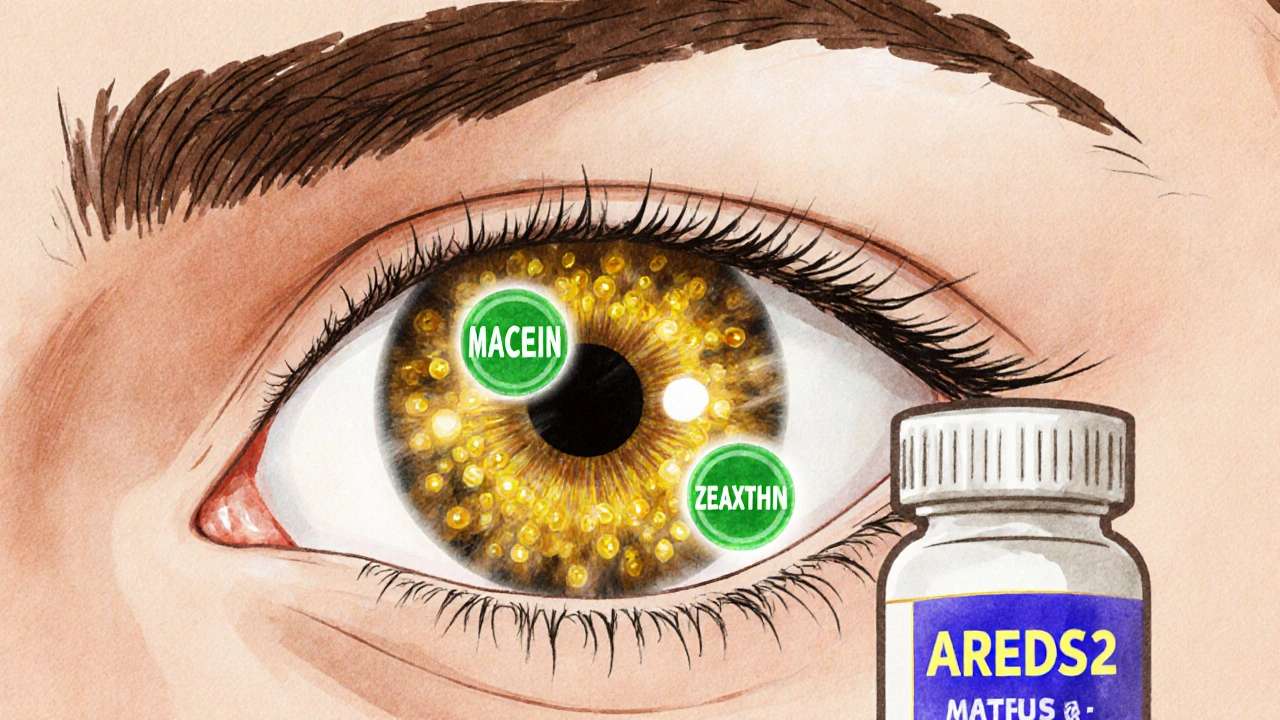AMD Supplements: What Actually Works for Eye Health
When it comes to age-related macular degeneration, a leading cause of vision loss in people over 50 that damages the central part of the retina. Also known as macular degeneration, it doesn’t just fade your sight—it changes how you live. And while there’s no cure, lutein, a carotenoid pigment found in leafy greens that concentrates in the macula to filter blue light and zeaxanthin, its close cousin that works alongside lutein to protect retinal cells have real, proven roles in slowing its progress. These aren’t magic pills, but they’re two of the few supplements backed by large, long-term studies like the AREDS2 trial.
Most people think all supplements are created equal, but that’s not true. omega-3 fatty acids, especially DHA and EPA from fish oil, which support retinal structure and reduce inflammation showed promise in early research, but later trials found they didn’t add much benefit when combined with lutein and zeaxanthin. Meanwhile, high-dose zinc and copper were part of the original AREDS formula, but newer versions cut out beta-carotene because it raised lung cancer risk in smokers. The bottom line? Stick to the updated AREDS2 formula if you’re at high risk—it’s the only one with solid, repeatable results. And don’t assume more is better. Taking extra doses of these nutrients won’t give you super-vision; it might just give you an expensive urine stream.
What you won’t find in most supplement bottles is the truth about diet. You can’t out-supplement a bad plate. People who eat spinach, kale, eggs, salmon, and orange peppers regularly have lower rates of AMD progression—not because of pills, but because their food naturally delivers the same nutrients in a form your body knows how to use. Supplements are meant to fill gaps, not replace meals. And if you’re taking blood thinners or have liver issues, some of these ingredients can interact. Always talk to your doctor before starting anything, especially if you’re already on meds for heart disease, diabetes, or high cholesterol.
Below, you’ll find real comparisons, debunked myths, and practical advice from people who’ve been there. No fluff. No hype. Just what works, what doesn’t, and what you should ask your eye doctor before buying another bottle.

AMD Vitamins: What the AREDS2 Study Says and Who Really Needs Them
AREDS2 vitamins are a proven supplement formula for slowing advanced age-related macular degeneration. Learn who should take them, what’s in them, and why they don’t work for prevention or early AMD.





